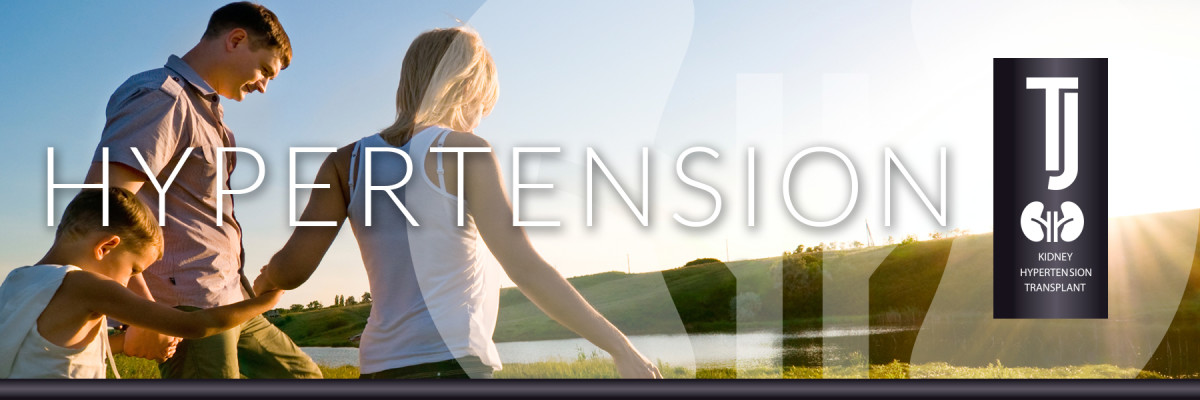
Hypertension, or high blood pressure, is a condition where the force of blood moving through the arteries becomes dangerously elevated. High blood pressure increases your chance of having a stroke, heart attack, heart failure, kidney disease, and should be monitored and treated by a professional nephrologist.
According to the World Health Organization (WHO), hypertension has become a global epidemic that affects approximately one billion people worldwide, and is one of the most important contributors to stroke and heart disease, which together make up the world’s number one cause of premature death and disability.*
What do the numbers mean?
Blood pressure readings are usually given as two numbers — for example, 120 over 80. The top number is called the systolic blood pressure, and the bottom number is called the diastolic blood pressure. Normal blood pressure is when your blood pressure is lower than 120/80 most of the time. High blood pressure (hypertension) is when your numbers are at 140/90 or more.
What causes hypertension?
Many factors can affect blood pressure, including:
- The health of your kidneys, nervous system, or blood vessels
- Hormone levels
- Stress and anxiety levels
- Age, weight and inherited genetic factors
- Alcohol consumption
- Too much salt in your diet
- Cigarette or other tobacco usage
Sometimes, high blood pressure can also be caused by another medical condition or medication. This is called secondary hypertension and some things that can cause it include:
- Chronic kidney disease
- Disorders of the adrenal gland
- Pregnancy
- Medications such as birth control pills, diet pills, some cold medications, and migraine medications
- Hyperparathyroidism
What are the symptoms of hypertension?
Most people with high blood pressure exhibit not symptoms at all. Many only discover they have hypertension during a regular checkup. In more several cases, some people will have severe headaches, nausea or vomiting, confusion, changes in vision, or nosebleeds. Call a physician as soon as possible if you or someone you know is experiencing similar symptoms.
How we treat hypertension
Treatment for high blood pressure can include multiples approaches including diet, medication, and exercise. There are many types of complementary and alternative treatments believed to be effective for treating hypertension and we work closely with you to identify and develop the right course of treatment to best fit your lifestyle and needs.
If you have questions about symptoms, diagnosis or treatment of hypertension or high blood pressure, please schedule an appointment with Dr. Tariq Javed at his offices in Visalia (559-625-8674) or Porterville (550-793-4400).




